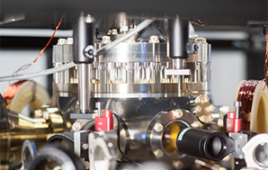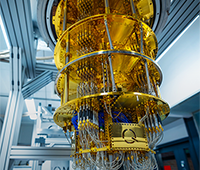 The best video gamers possess quick reaction times and expert hand-eye coordination, all similar qualities of a great surgeon. These similarities present the question of whether or not gaming skills have any effect on basic robotic surgery skills, which the Florida Hospital Nicholson Center recently put to the test. Research on whether or not gaming influences surgical aptitude has been an ongoing focus in research facilities and hospitals nationwide, making tests to determine its influence particularly important.
The best video gamers possess quick reaction times and expert hand-eye coordination, all similar qualities of a great surgeon. These similarities present the question of whether or not gaming skills have any effect on basic robotic surgery skills, which the Florida Hospital Nicholson Center recently put to the test. Research on whether or not gaming influences surgical aptitude has been an ongoing focus in research facilities and hospitals nationwide, making tests to determine its influence particularly important.
Participants included video game experts, expert robotic surgeons, medical students and “laypeople” (i.e. individuals without formal medical education or extensive gaming experience). The subjects, including students from University of Central Florida (UCF) College of Medicine and UCF Florida Interactive Entertainment Academy, performed three perceptual tests on a computer and then the basic skill exercises on a robotic surgery simulator. Video game experts were required to be enrolled in a game design program and self-report daily videogame play of at least two hours per day, five days per week. Expert robotic surgeons were recruited from Florida Hospital, Florida Hospital Nicholson Center training courses, and at relevant surgical conferences. These individuals were practicing surgeons and self-reported performing at least 100 robotic surgical procedures, of which he or she performed at least 50 percent of the procedure on the surgical console.
First, the participants completed a demographic questionnaire, followed by three computer-based perceptual tests and two warm-up tasks on the Mimic dV-Trainer to familiarize themselves with the system. The experiment then measured the participants’ performance over eight trials of two core simulated exercises. After completing these trials, participants completed a post-questionnaire about their experience.
Contrary to prior literature in laparoscopic skill training, our results found that prior expertise in video games had no effect on simulated robotic surgery, meaning that a gaming skillset does not seem to produce an advantage over any other group. The results did suggest that subjects who use higher movement game controllers (i.e. Nintendo Wii) scored higher in the first exercise, however, those individuals also took longer to complete the tests and were less efficient with their movements.
So, why do video games have a positive effect on laparoscopic training, but not robotic? The conflicting results may be due to the difference between the 3-D robotic environment and 2-D laparoscopic screen, which is more similar to a video game. From this study, we have concluded that the effect of video game play on surgical training may be nuanced by the surgical technique. In a technologically dependent society where video games have become an integral pastime, this analysis of skills will likely become more valuable as other fields leverage the gaming generation’s experience into training. This knowledge helps us determine the optimal way to format our training for each individual task to make sure we stay at the top of innovative training and research.
Dr. Roger Smith is the Chief Technology Officer for Florida Hospital’s Nicholson Center. He was previously the CTO for U.S. Army Simulation, Training and Instrumentation, and a Research Scientist at Texas A&M University. He remains on the Graduate Faculty at University of Central Florida and President of Modelbenders.



